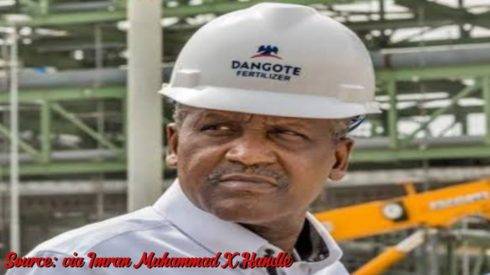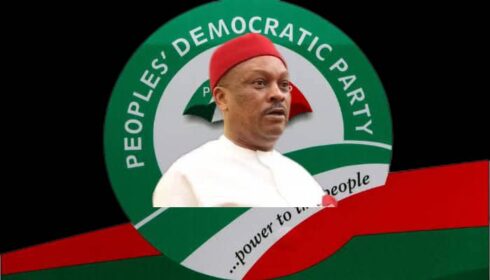Aliko Dangote, Nigerian business magnate and founder of the Dangote Group, has stirred discussions by asserting that claims of cheaper Premium Motor Spirit (PMS) imports likely indicate the fuel’s substandard quality. Aliko Dangote argued that only lower-grade fuel could be sold at prices below the rate offered by reputable suppliers. According to him, legitimate sources could not sustainably land PMS at prices under current market rates without compromising on quality.
Aliko Dangote’s comments come amid rising concerns over Nigeria’s fuel import landscape, where some distributors claim to provide PMS at discounted prices. As Nigerians grapple with fluctuating fuel costs, Aliko Dangote’s statement urges consumers and regulators alike to be vigilant, emphasizing that low-cost offers may carry hidden risks.
Aliko Dangote Criticizes Regulatory Oversight and Testing Facilities
Aliko Dangote also expressed concerns over Nigeria’s fuel import monitoring system, specifically criticizing the Nigerian Midstream and Downstream Petroleum Regulatory Authority (NMDPRA). According to him, the regulatory body lacks the necessary laboratory facilities to test and detect substandard fuel products when they arrive in Nigeria. He suggested that this oversight could allow low-quality PMS into the market, compromising vehicle performance and air quality.
The NMDPRA’s role is to ensure compliance with fuel quality standards and protect consumers. However, Aliko Dangote’s remarks highlight the limitations in enforcement capabilities. Without adequate laboratory resources, the regulatory body is unable to rigorously inspect imported fuel, potentially leaving Nigerian consumers vulnerable to subpar products.
The Impact of Substandard PMS on Nigerian Consumers
Substandard PMS not only affects vehicle engines but also poses risks to the environment and public health. Aliko Dangote noted that using low-quality fuel could lead to increased vehicle maintenance costs due to engine wear and tear. The risk of damage grows when fuel quality is compromised, adding strain on consumers already facing economic challenges.
Environmental experts have also warned of the potential rise in air pollution linked to substandard fuel. Emissions from poor-quality PMS contribute to hazardous pollutants, threatening air quality and public health. With Aliko Dangote’s recent statements, these concerns may prompt more scrutiny of Nigeria’s PMS imports.
Call for Improved Testing Infrastructure and Standards Enforcement
Aliko Dangote’s remarks underscore the need for improved testing infrastructure within Nigeria’s fuel regulatory framework. He emphasized that only a robust testing system can reliably identify substandard fuel before it reaches the market. To this end, Aliko Dangote called on the Nigerian government to invest in laboratory facilities for the NMDPRA, enabling the agency to conduct thorough inspections of imported products.
Enhanced testing capabilities would not only protect consumers but also deter importers from attempting to bring in lower-grade fuel. With appropriate infrastructure in place, regulators could more effectively enforce quality standards and safeguard Nigeria’s fuel supply chain.
Industry Stakeholders Weigh in on Dangote’s Statements
Aliko Dangote’s comments have sparked reactions from industry stakeholders, including fuel importers and regulatory experts. Some importers have defended their pricing models, arguing that market competition drives them to seek efficiencies. However, Aliko Dangote insists that quality should not be compromised for the sake of cheaper prices, particularly when the effects on consumers and the environment are considered.
Experts in regulatory affairs have voiced support for Aliko Dangote’s call for stricter enforcement measures. They agree that better facilities and stricter oversight are essential for maintaining quality across the supply chain. The industry consensus appears to lean toward a call for action in strengthening Nigeria’s regulatory framework for fuel imports.
Dangote’s Vision for a Quality-Driven Fuel Market in Nigeria
Dangote’s vision emphasizes a quality-driven approach to fuel distribution in Nigeria. His comments suggest that he sees higher standards not only as a way to ensure customer satisfaction but also as a route toward a sustainable, reputable fuel industry. By prioritizing fuel quality, Dangote believes that Nigeria can create a market where consumers can trust the fuel they purchase, irrespective of price fluctuations.
Looking ahead, Dangote has urged the Nigerian government and private stakeholders to collaborate on implementing industry-wide improvements. This, he believes, would not only boost public confidence in the local fuel market but also protect long-term economic and environmental health. His stance serves as a call to action for an industry faced with the dual challenges of affordability and quality assurance.
Table of Contents
Discover more from OGM News NG
Subscribe to get the latest posts sent to your email.














